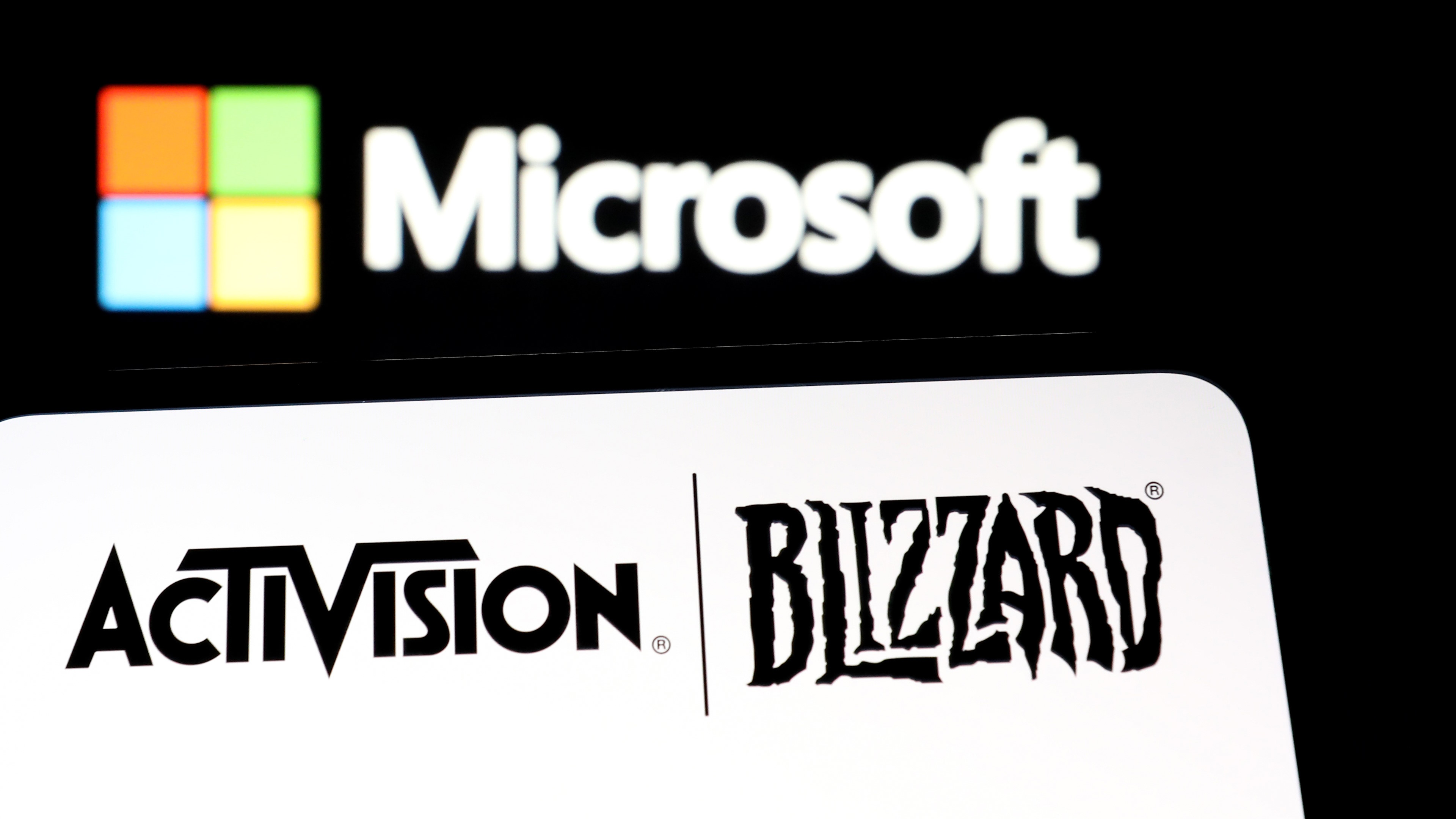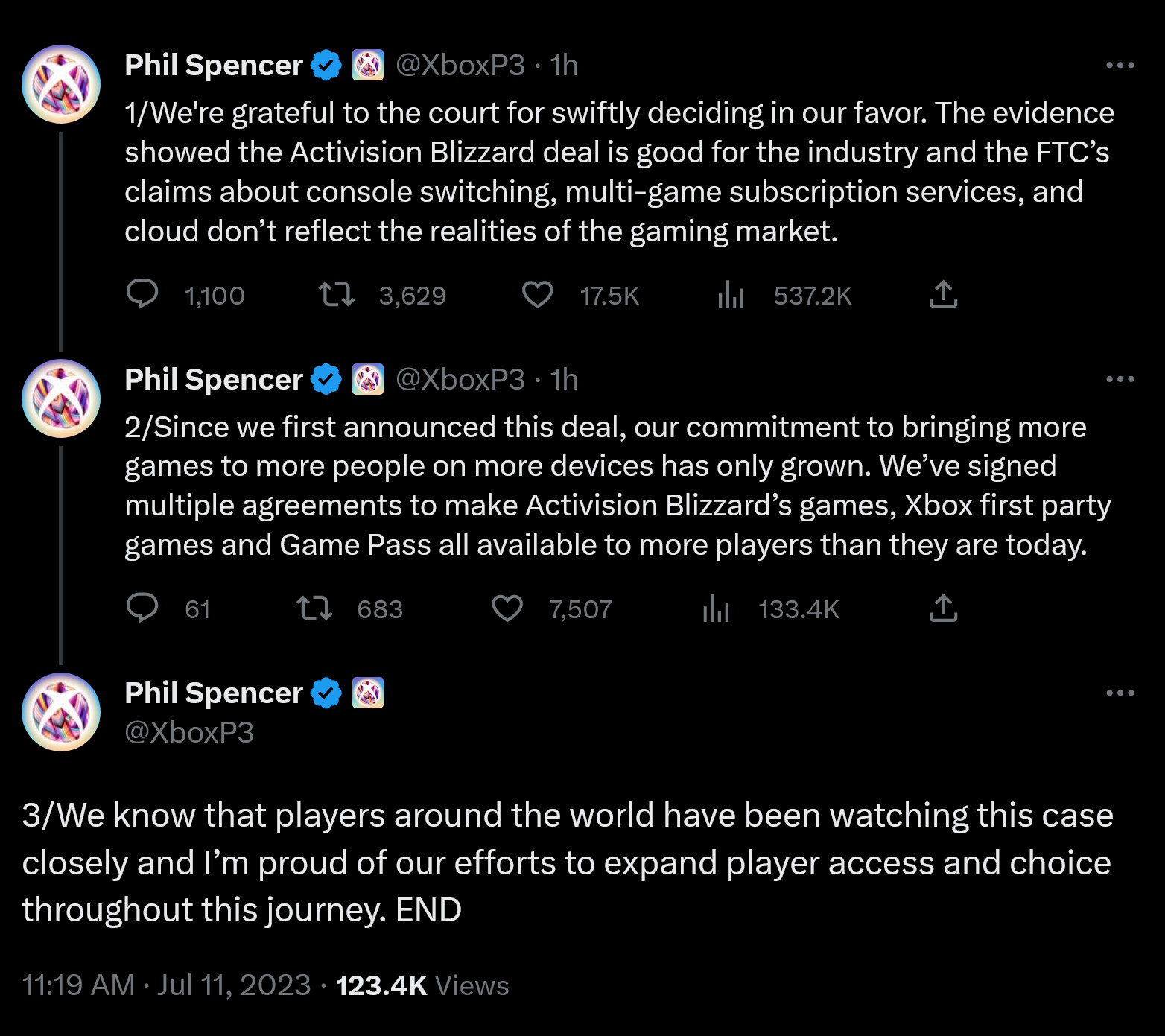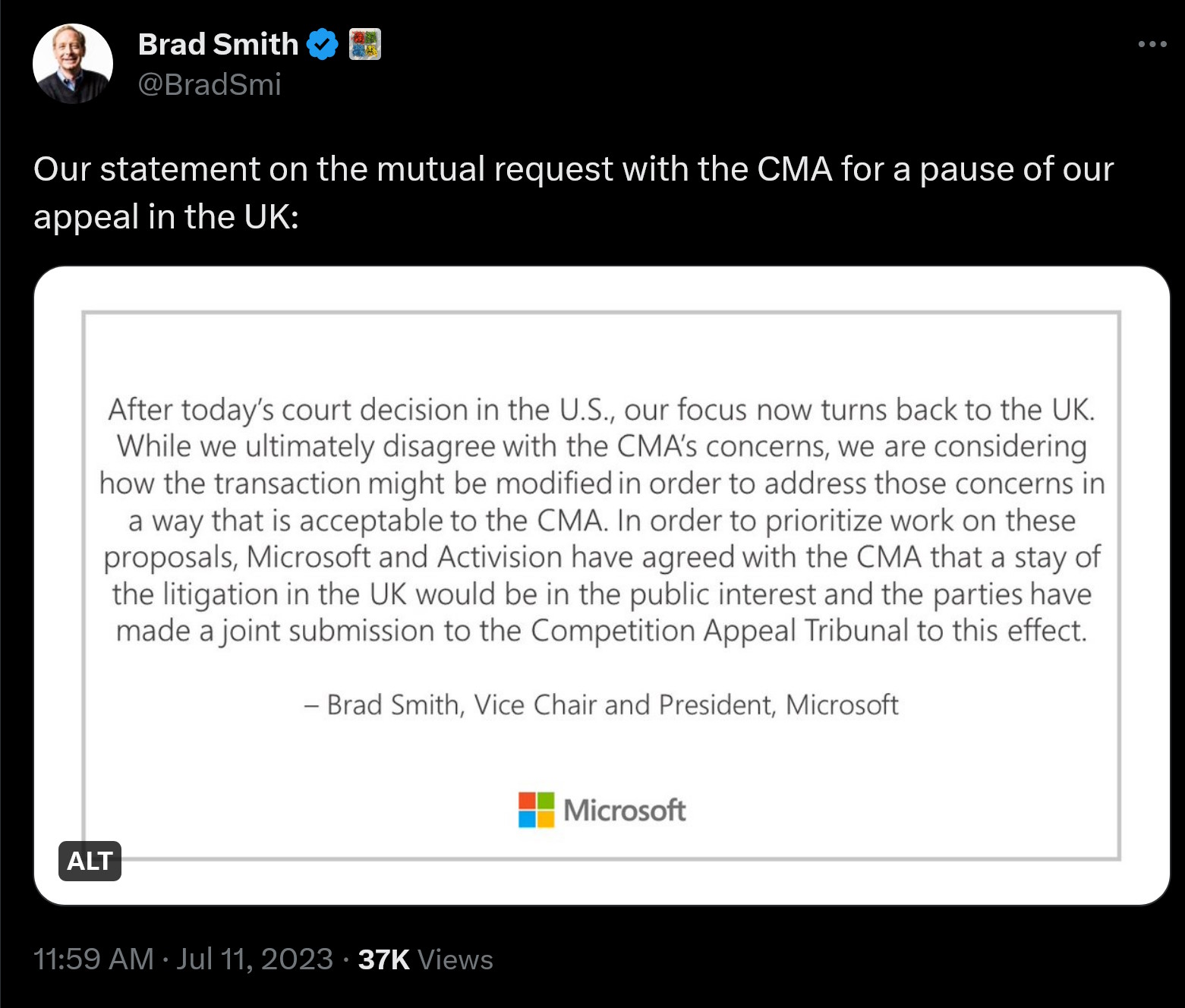FTC says it will appeal Microsoft's big win in Activision Blizzard battle
The FTC's request for an injunction against Microsoft's acquisition of Activision Blizzard was denied earlier this week, clearing the way for the deal to finally close.

Update: The day after its request for an injunction against Microsoft's acquisition of Activision Blizzard, the FTC has filed notice that it intends to appeal the decision. The timeline is very tight: The restraining over preventing Microsoft from closing the deal expires at the end of this week, after which—unless the FTC can win another stay—it's free to move ahead.
"The facts haven’t changed," an Activision Blizzard rep said in a statement sent to PC Gamer. "We’re confident the US will remain among the 39 countries where the merger can close. We look forward to reinforcing the strength of our case in court, again."
Original story:
The FTC's request for a preliminary injunction against Microsoft's proposed acquisition of Activision Blizzard has been denied, meaning that the deal can now be closed—even though the FTC's larger case against the deal is still moving forward.
"Our merger will benefit consumers and workers," Activision Blizzard CEO Bobby Kotick said in a statement released immediately following the ruling. "It will enable competition rather than allow entrenched market leaders to continue to dominate our rapidly growing industry."
The request for a preliminary injunction was in fact just a midway step in the FTC's ongoing challenge against the deal, intended to prevent the acquisition from being completed before a final ruling on the proposed buyout could be made. It was something of a twist on the permission vs forgiveness conundrum: The FTC's lawsuit against the acquisition becomes a lot less meaningful if the deal is already closed.
"After considering the parties' voluminous pre-and-post hearing writing submissions, and having held a five-day evidentiary hearing, the Court DENIES the motion for preliminary injunction," the heavily-redacted ruling states. "The FTC has not shown it is likely to succeed on its assertion the combined firm will probably pull Call of Duty from Sony PlayStation, or that its ownership of Activision content will substantially lessen competition in the video game library subscription and cloud gaming markets."
The biggest gaming news, reviews and hardware deals
Keep up to date with the most important stories and the best deals, as picked by the PC Gamer team.
The judge rejected the FTC's claim that Microsoft's decision to make Starfield and Redfall console exclusives demonstrated a likelihood that the same could happen with the Call of Duty series, stating that neither are "are remotely similar to Call of Duty." She also said the complaint that the merger "will probably lessen competition in the cloud gaming market" doesn't hold water because of all those deals Microsoft has been doing with companies you've never heard of.
"Before the merger, there is no access to Activision's content on cloud-streaming services," the ruling states. "After the merger, several of Microsoft's cloud-streaming competitors will—for the first time—have access to this content. The merger will enhance, not lessen, competition in the cloud-streaming market."
In fact, that sentiment seems to hold across the board: The judge said that while the FTC has failed to adequately support its case, the intense scrutiny of the deal has paid off in the form of Microsoft's commitment to keeping Call of Duty on PlayStation platforms for 10 years, to bring the series to the Nintendo Switch, and in all those agreements with cloud gaming services. It seems that Microsoft's Herculean efforts to make friends were not in vain.
"The Court finds the FTC has not shown a likelihood it will prevail on its claim this particular vertical merger in this specific industry may substantially lessen competition," the ruling concludes. "To the contrary, the record evidence points to more consumer access to Call of Duty and other Activision content. The motion for a preliminary injunction is therefore DENIED."

Kotick said in a blog post that the ruling "signals a path to full regulatory approval elsewhere around the globe," and that the company is ready to work with regulators in the UK—who have already blocked the buyout—"to address any remaining concerns so our merger can quickly close."
"We're grateful to the court for the way this process was handled and the thoughtfulness of the decision," Kotick wrote. "The US joins the 38 countries where our deal can proceed—these decisions are based on facts and data that show our merger is good for players and for competition in the industry."
The FTC, of course, feels very differently about the ruling.
"We are disappointed in this outcome given the clear threat this merger poses to open competition in cloud gaming, subscription services, and consoles," FTC spokesperson Douglas Farrar said in a statement send to PC Gamer. "In the coming days we'll be announcing our next step to continue our fight to preserve competition and protect consumers."
It's possible that the FTC could appeal the ruling, although there's no indication at this point that it will. Microsoft's acquisition of Activision Blizzard has previously been approved pretty much everywhere except the UK, including the European Union, China, Japan, and Saudi Arabia. And it seems that, with the FTC case effectively collapsed, UK regulators are ready to talk: The Competition and Markets Authority said in a statement sent to The Verge that it is now "ready to consider any proposals from Microsoft to restructure the transaction in a way that would address the concerns set out in our Final Report."

The acquisition deadline is set for July 18, and the expectation is that Microsoft will wrap things up prior to that; the FTC's trial to determine whether the deal will be approved is set to get underway on August 2.

Andy has been gaming on PCs from the very beginning, starting as a youngster with text adventures and primitive action games on a cassette-based TRS80. From there he graduated to the glory days of Sierra Online adventures and Microprose sims, ran a local BBS, learned how to build PCs, and developed a longstanding love of RPGs, immersive sims, and shooters. He began writing videogame news in 2007 for The Escapist and somehow managed to avoid getting fired until 2014, when he joined the storied ranks of PC Gamer. He covers all aspects of the industry, from new game announcements and patch notes to legal disputes, Twitch beefs, esports, and Henry Cavill. Lots of Henry Cavill.

